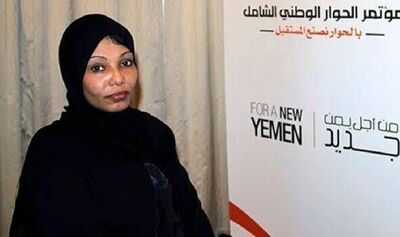
At just 11, Noora Al Shami was dressed in grown-up clothes, completely unaware of the horrifying nightmare awaiting her that evening when her 35-year-old cousin and future spouse brought her home to sexually assault her.
Throughout a three-day celebration in Yemen's coastal city of Al Hudaydah, little Noora wore "three beautiful dresses" at the family gathering, only to endure years of sexual abuse at the hands of Mohammed Al Ahdam.
For naive Noora, getting dressed up felt like innocent entertainment, yet it proved to be a terrifying preview of the anguish to come. "I was allowed to wear adult clothes, to put on jewellery, to accept presents," Noora, now aged 47, told The Guardian.
"What hadn't occurred to me was that I would be abused by a violent criminal."
The initial occasion Al Ahdam exposed himself to Noora, she fled. She succeeded in evading the assault for 10 days until Al Ahdam's sisters blamed her for "bringing shame on our brother by rejecting him", reports the Mirror.
When the rape occurred, Noora's body went into shock.
"I was rushed to hospital - I was a child being treated as a sex object, but the abuse did not stop. Nobody cared about my complaints, as I was legally a wife."
Al Ahdam, a significantly older distant relative, wed Noora in 1989 immediately after she turned 11. "He was three times my age and saw marriage as a means to behave like a depraved animal," Noora said.
In 2021, UNICEF reported a shocking 4 million child brides in Yemen. Decades following Noora's own forced marriage as a child, Human Rights Watch statistics from 2006 revealed that 14% of Yemeni girls were wed by age 15, with more than half married before reaching 18.
Families often wed off their daughters to alleviate financial hardship in exchange for a bride price, despite Islamic law providing minimal safeguards for young girls.
"My husband provided a dowry of around $150, which was a huge amount. But it was at the end of the wedding that the fear and horror set in. I was taken away from my parents and left with a man who meant nothing to me. He drove me to the house he shared with his widowed father in Al Hudaydah. It was a nice home but I immediately started to quiver, and to cry."
Noora endured two miscarriages within 12 months before giving birth to her son Ihab at merely 13.
Her daughter Ahlam arrived when Noora was 14, followed by another son, Shihab, at 15, with each pregnancy fraught with medical difficulties.
Her husband Al Ahdam's violence escalated.
"He thought nothing of hitting me, even when I was pregnant," Noora recalled.
"If his father hadn't been in the house, it would have been even worse. His presence was some kind of restraint, but I was still very badly injured."
Al Adham also inflicted his savagery upon their children, once grabbing their daughter Alham by the feet and hurling her onto the floor, leading to a hospital admission for the two year old, who was bleeding and wounded. After suffering through ten years of dreadful abuse, Noora discovered solace through an initiative run by Oxfam and the Yemeni Women's Union which assists victims of domestic violence.
She then made the brave decision to pursue divorce proceedings. The battle was far from over. Noora fought through the courts for maintenance payments to support her children.
Her determination led her back to her studies, where she qualified as an educator, and she now campaigns tirelessly for tougher legislation on child marriage.
Noora refuses to remain trapped by the "ruins of the past".
"We need to change the lives of our children, and not just by paper laws," she says.
"We need a complete change in culture. It's not really something that the law has been able to control, especially not in tribal communities," Noora acknowledges.
"The legal marriage age has been 15 for some time, but my mother was first married at nine, and divorced by 10, before going through another two marriages. She had me in her early teens.
"I wanted to stay at school and get a good job, but my parents could not afford it. They did not want me to live in poverty forever. I did not understand their decision to marry me off - only that the same thing happened to most girls my age."
Despite the relentless work of Noora and fellow activists to increase the legal marriage age from 15 to 18, the physical and emotional scars frequently last a lifetime. However, even with potential amendments to the law, Islamic law does not establish a minimum age for marriage, and Yemeni clerics often contest any legal limitations.
At present, 30 per cent of girls in Yemen are wed before they reach 18, and 7 per cent marry before they turn 15, as reported by the advocacy group Girls Not Brides.
If this article has impacted you, please get in touch with SARSAS at info@sarsas. org.uk or seek guidance from the NHS on assistance after rape or sexual assault.
You may also like

Priyank Kharge questions if Kiran Mazumdar-Shaw will criticise Maha or UP govt

14 lakh UP government employees to receive Diwali bonus, says CM Yogi Adityanath

These 5 most watched movies on OTT, did you miss them?

Keir Starmer is a despicable opportunist and just proved it to the whole world

Former President Kovind to launch NHRC's 32nd Foundation Day event on Oct 16







